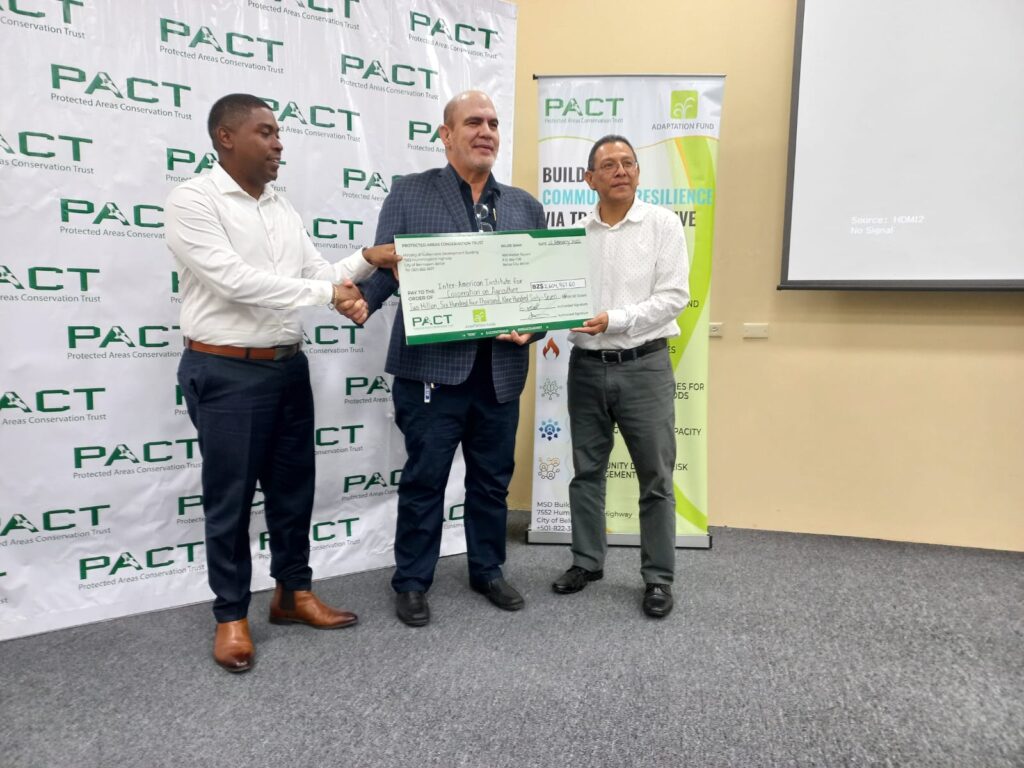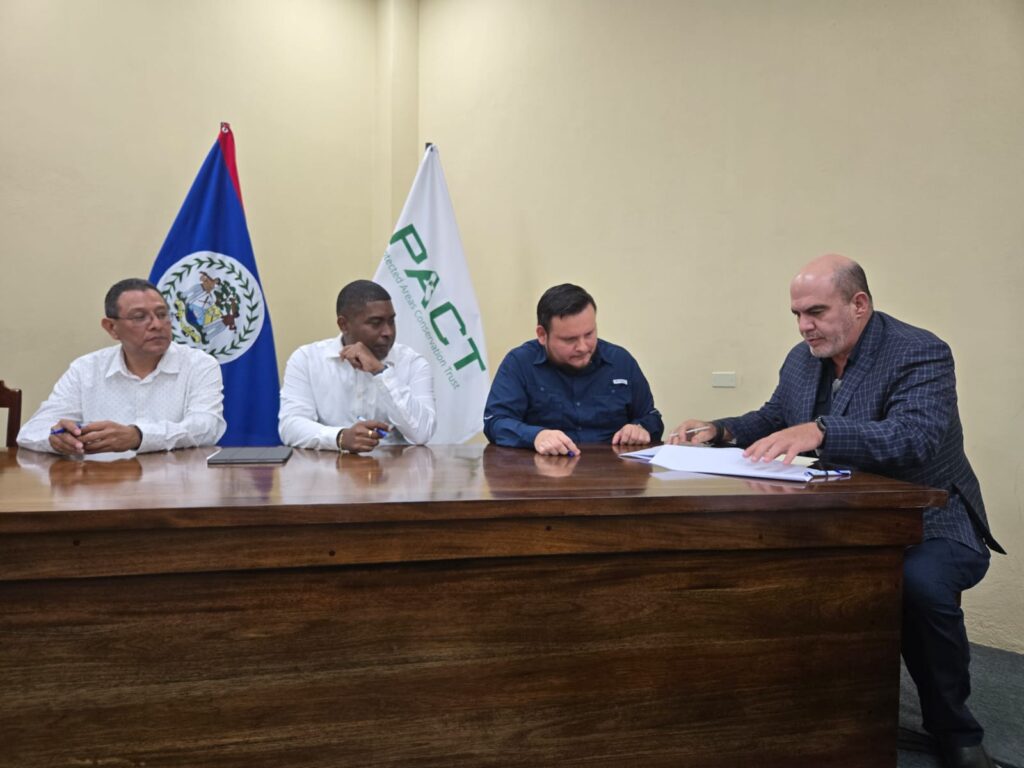
San Jose, 26 February 2025 (IICA) – The Inter-American Institute for Cooperation on Agriculture (IICA) will implement a project to foster good agricultural practices in Belize, with the aim of strengthening food production in a context of greater resilience.
The initiative, entitled “Creating Opportunities to Support Alternative Livelihoods”, is Component 3 of the “Building Community Resilience via Transformative Adaptation” project (EDA Project) of the Protected Areas Conservation Trust (PACT).
The EDA awards grants to fund efforts aimed at adapting to climate variability, and focuses on five interconnected components that are key to increasing community resilience.
The project hopes to benefit 150,000 persons directly and 100,000 indirectly.
The IICA Delegation in Belize signed a contract with PACT to execute Component 3 over the course of 42 months, with an investment of USD 1.3 million.
Restoring soils and reducing fertilizer use
The IICA-led initiative will set up five demonstration plots in which producers will receive training and advice on soil restoration methods that make soil less susceptible to erosion and droughts by increasing organic matter which, in turn, improves water retention and increases productivity.
The initiative will also promote biological control for fertilization on farms, through composting and the use of compost teas, which allow for reducing the use of chemicals such as pesticides or fertilizers to control pests.
“The project will be carried out in communities that commonly implement traditional practices such as slash-and-burn farming systems, unregulated use of herbicides and pesticides, and crop planting near rivers or on hillsides. These practices often cause greater soil erosion and decreased water quality, and have a direct impact on the functioning of local ecosystems. As such, they are not sustainable”, explained Mauricio Guevara, IICA Representative in Belize.
The initiative will also include a business module that will build the capacity of community members to generate income from natural resources in their territory, in a sustainable manner.
“By strengthening their economic sustainability, community members will be able to face the economic impacts of climate variability with greater resilience, stronger food production systems and improved natural resource-dependent livelihoods”, added Guevara.
The project will therefore build Belize’s long-term capacity to protect communities from droughts, floods and unpredictable water availability, among other threats.












